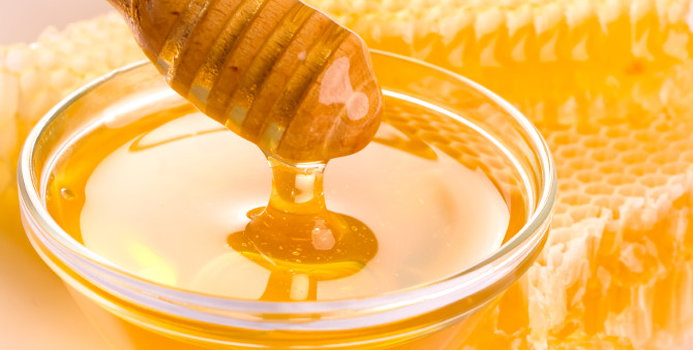Organic honey is not only delicious, this natural sweetener has nutritional value that makes it a great alternative to white table sugar.
How Honey is Made
Honey is a natural product. It is basically manufactured by bees, either in the wild or on bee farms. The honeybees collect nectar from flowers and take it back to the beehive. Next worker bees chew the nectar, adding enzymes in the process. The honey is then spread into honeycombs and fanned by the wings of the bees to dry. Once the honey is concentrated enough, the bees seal off the honeycombs with a plug of wax. Beekeepers then smoke out the bees from the hive so they can retrieve the honeycombs and extract the sweet honey.
Why Organic Honey?
Traditional honey farms use antibiotics on the bees to keep them healthy. This can sometimes lead to the contamination of the honey with antibiotics. Organic farms don't use antibiotics on their bees. These farms are also free from harmful pesticides that could also potentially contaminate the honey. On the other hand, there is much debate over whether or not organic farming practices prevent the contamination of honey by pesticides. Bees are free roaming creatures and could potentially encounter pesticides from neighboring areas and end up contaminating the honey anyway. One benefit of organic honey is that it is often sold raw (meaning unheated), which helps to ensure that you're getting the most nutritional value out of the product.
Nutritional Value
Honey is comprised of roughly 80 percent natural sugar and 18 percent water. The remaining 2 percent is made up of vitamins, minerals, pollens, and protein. The vitamins in honey include vitamin C, B6, riboflavin, niacin, and thiamin. The minerals present in honey include calcium, iron, copper, manganese, potassium, phosphorus, zinc and sodium. Honey also contains 22 amino acids. The nutritional value of honey can vary depending on the flowers that the bees used for the nectar.
Other Nutritional Benefits of Honey
- Has a lower rating on the Glycemic Index than table sugar, which means it is less likely to spike blood sugar levels
- Is sweeter than table sugar, so you need less of it to sweeten foods
- Produces a natural laxative effect and can help relieve constipation
- May also help to alleviate symptoms of diarrhea and dysentery
- Has natural antibacterial and anti-inflammatory properties
- Can be used as an appetite stimulant
- Is easy on the digestive system
- Has been shown to be one of the most effective forms of carbohydrates to ingest prior to exercise
- Has been known to help with post workout recuperation
- Contains antioxidants that help prevent against cellular damage
- Reduces the oxidation of LDL (bad cholesterol) which cuts down on the risk of developing atherosclerosis
- May help prevent seasonal allergy symptoms
Honey should not be given to babies under 12 months of age because it may contain bacteria that can cause infant botulism.



